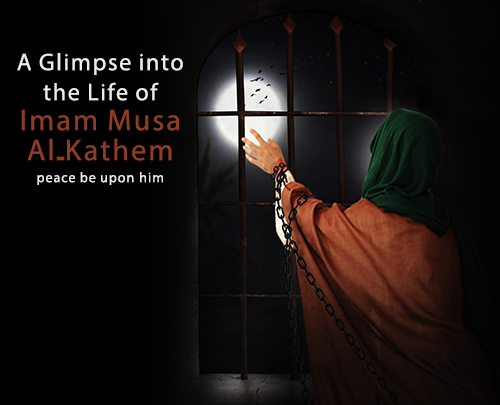Imam Musa, peace be on him, had good, pure children who were the best of the children of the Muslims in that time in fear of Allah, righteousness, behavior, piety, refraining from sins and false things in the world. Many of them led a perfect, religious life. That is because the Imam directed them to the righteous direction, and poured into their souls ideals, faith in Allah, full dedication to the thought, and deeds for serving the truth. Concerning them Ibn al-Sabbagh has said: “Surely each of the children of Abu al-Hasan Musa, peace be on him, had a memorable excellence.”1
Al-Shaykh al-Tubrisi has said: “Surely each of the children of Abu al-Hasan Musa, peace be on him, had a famous excellence and a laudable deed.”2
They inherited from their forefathers virtue, honor, and glory, so through their behavior they were wonderful examples for virtue and perfection.
Some of them declared a revolt against the government of the ‘Abbasids that they might make happy the Muslims, save them from the tyranny and oppression of the ‘Abbasids, just as we will mention. We have to mention that the genealogists and the traditionists have greatly differed over their number. That is as follows:
1. They were thirty-three; sixteen males, seventeen females.3
2. They were thirty-seven; eighteen males, nineteen females.4
3. They were thirty-eighty, twenty males, eighteen females.5
4. They were forty, eighteen males, twenty-two females.6
5. They were sixty, twenty-three males, thirty-seven females.7
There are narrations other than these. The names of both males and females are as follows:
The Males:
Imam al-Rida, peace be on him, Isma‘il, Ja‘far, Harun, Hamza, Muhammed, Ahmed, Qasim, ‘Abbas, Ibrahim, Hasan, ‘Abd Allah, Zayd, Husayn, al-Fedl, Sulayman, Salim, Sa‘eed,8 ‘Aqeel, Ibrahim the elder, and ‘Abd Allah.9
The Females:
Um ‘Abd Allah, Qusayma, Lubaba, Um Ja‘far, Umama, Kelthem, Burayha, Um al-Qasim, Mahmuda, Amina the elder, ‘Aliya, Zaynab, Ruqaya, Hasna, ‘A’isha, Um Salama, Asma’, Um Farwa, Aamina, Um Abeeha, Halima, Remla, Maymuna, Amina the younger, Asma’ the elder, Zayneb, Zayneb the elder, Fatima the elder, Fatima, Um Kulthum the elder, Um Kulthum the younger, Um Kulthum the youngest. Al-Ashnani (an author) has added to them: ‘Attfa, ‘Abbasa, Khadija the elder, Khadija,10 and Sarha.11 Accordingly, the number of the ladies from among his children is thirty-seven. Shaykh al-Aftuni has written a poem on their names, saying:
And his children are: ‘Ali the lamp, Ibrahim and al-‘Abbas comes after him.
And Qasim, Ja‘far, Muhammed, Harun, Isma‘il, then Ahmed.
And Hamza, Ishaq, ‘Abd Allah, Zayd, Sulayman, ‘Ubayd Allah.
Two Ruqays, Hasan, then Hasan, Zayneb, Um Salama (who were) endowed with insight.
Um Abeeha, with whom the number is complete. All of them are the children of noble mistresses, not ignoble.
1- Al-Fusool al-Muhimma, p. 256, (Iran Edition).
2- A'lam al-Wara.
3- Tuhaf al-Azhar wa Zulal al-Anhar.
4- Sihah al-Akhbar. Al-Fusool al-Muhimma, p. 256. Al-Bihar.
5- Kashf al-Ghumma, p. 243. Tadhkirat al-Khawas, p. 84.
6- Sir al-Silsila al-'Alawiya.
7- Al-Mujjdi. 'Umdat al-Talib. Menahil al-Darb fi Ansab al-'Arab.
8- 'Umdat al-Talib.
9- Ahsan al-Kibar.
10- Al-Mujjdi.
11- Tuhfat al-Azhar.

















